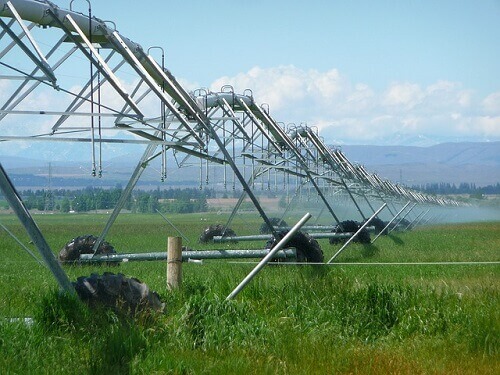Everyone knows that agriculture plays a crucial role in the growth of the African continent. It serves as the cornerstone for both the expansion of the economy and the eradication of poverty and environmental sustainability.
The food market of African nations continues to grow every day. There is even an estimation, that the African food market could triple to the $1 trillion mark from the $300 billion value it held about 3 years ago.
The total development in Sub-Saharan Africa consists of over 60% of agriculture.
The food system jobs however account for much more than the farming itself. In several African nations like Zambia, Ethiopia, Mozambique, Uganda, Tanzania, and Malawi, more jobs are expected to be made available by the food system in those nations between the years 2010 and 2025.
However, the agricultural sector of the African continent is facing a lot of serious challenges that need to be resolved. The productivity of African agriculture falls short of others from other continents.
Undernourishment is also one problem being faced by people in Sub-Saharan Africa. Rapid population growth is further straining the agriculture and food systems in the region as well as the climate change that is occurring.
The challenges faced by the security of food will get worse with the growing intensity of climate change. This in turn threatens the good yield of crops and livestock production on the continent.
If there is no mode of adaption to the agricultural sector, the production of one of Africa’s biggest staple crops, which is maize could see a significant drop by more than 40% by the year 2050.
Business approaches to the agricultural sector in Africa are also not fit for the transformation of the sector to meet its full potential.
Digital technology could be used to solve some of the problems facing the agriculture sector in Africa. There are ways through which digital technology can be used to transform Africa’s food system.
Startup in African agriculture is one of the important areas to look at. These startups are an emerging force in the majority of African countries.
One of the most notable technological tools is known as ‘Hello Tractor’ this one helps in connecting farmers with people who own tractors so that the farmers will be able to rent the smart tractors, which are being touted as a potential game-changer in the African agricultural sector.
There is an estimated number of about 13 smart tractors that can be accessed by farmers within a distance of 100.000 kilometers and about 200 tractors globally.
One other digital technological tool that is being used to connect farmers is known as 2KUZE.
This connects farmers to buyers, agents, and banks in nations like Tanzania, Uganda, and Kenya.
With the 2KUZE platform, smallholders can connect easily to buyers as well as agents so that they will be able to get the best prices possible for their goods and also receive the payments directly themselves on their mobile phones. (You can check out our guide on E-Zwich payment system in Ghana)
This helps them to avoid having to walk in the markets for hours and hours.
Digital technology can also help the farmers to get access to capital as well as the needed resources.
Farmers can now rent farm equipment at the touch of a button. These are tools that would have otherwise required a hefty sum to acquire which the farmers may not have had.
Digital technology can also help small players in the agricultural sector to be integrated into the value chain.
E-commerce platforms can link consumers to producers easily, easing the sweat that farmers had to go through before they could reach consumers to purchase their goods.
Digital technology can also be used to get information on the lands by the use of precision tools. This helps to boost the yield of the food production sustainably.
This information is made readily available to the farmer when he needs it.



